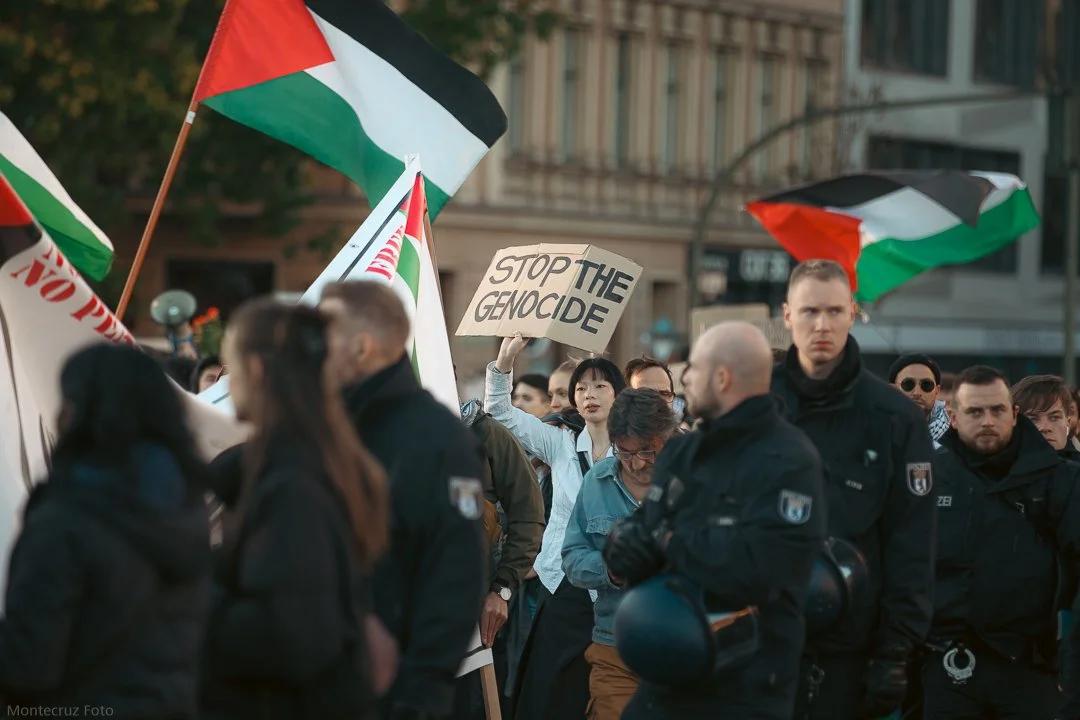Two London CND coaches made their way to Aldermaston on Easter Sunday to celebrate CND’s 60th anniversary in traditional style, with old friends and new, including a Samba band who kept our toes tapping. HELEN MARTINS (pictured) was on board. You can read her report below, and check out our photo album here.
Looking at the overcast sky, CND General Secretary Kate Hudson reminded us that the first Aldermaston march held in 1958 was the wettest Easter on record since 1900! Kate opened the 2018 rally at Aldermaston on 1 April and attended by several hundred people. And how much there was to commemorate and celebrate, and how the goal of global nuclear disarmament is now within reach.
Kate later paid tribute to two lifelong and much-missed activists, who died in recent weeks – Marg Behrman and Phillip Wearne – who both worked so hard for a world free of war and weapons.
Veteran campaigner Walter Wolfgang, CND Vice-President, was organiser of the first Aldermaston march. Sixty years on, he said that civilisation has not kept up with technological progress. He remembered the last leg of that march, and arriving at Aldermaston – “a place of barbarism, which remains a place of barbarism.” He talked about a current political establishment that has become frightened and is hitting out against anyone who wants to abolish nuclear weapons, but that in Jeremy Corbyn we now have the best possible Labour leader anywhere. “We now need to succeed wholly, not just half-way.”
May Chatham travelled to the rally from Manchester. Her parents took her on the first Aldermaston march: aged 16 at the time, she joined them very reluctantly. But by 1959 she had joined a direct action group and been arrested. May said she is still active. And she is still angry. She said she was at the rally in 2018 to register her protest, in particular about the ‘toddler’ international leaders who keep on saying “my toy is bigger than yours.”
Poet and patron of CND Peace Education, Antony Owen, read from his book of very moving poems The Nagasaki Elder. Anthony argued for the need to start proliferating peace, because millions of pounds are spent on nuclear weapons but peanuts on peace education.
Officiating at four weddings one afternoon in Kensington, Bruce Kent, CND Vice-President, was perplexed why bride after bride was arriving late. It turned out they had all been held up because the streets were filled with people on the first Aldermaston march. The same year, an Archbishop asked Bruce whether he thought it was OK to murder hundreds of thousands of people. Bruce thought not. The Archbishop then asked him “Isn’t it a sin then just to have the intention to do so?” Bruce agreed. Talking about deterrence, Bruce asked “Deter who? You can’t deter accidents.”
The Nuclear Information Service is a non-governmental organisation in Reading. David Cullen talked about warheads being assembled in Burghfield and the research and development work on uranium and plutonium being done at Aldermaston. Aldermaston has the 197th most powerful computer in the world and uses it to carry out virtual nuclear testing. And the Aldermaston site is continually being upgraded and expanded, with massive building plans that stretch into 2030s, creating “a footprint to keep nuclear weapons in perpetuity.”
Carol Turner, London CND Chair, then paid tribute to Helen John, who also died recently. Most famous for the women’s peace camp at Greenham, Helen was a lifelong and passionate campaigner against nuclear weapons.
Rebecca Johnson, CND Vice-President, urged people to join the regular Aldermaston peace camp, and to turn up in thousands at the demo at Faslane on 22 September. She reminded us that the original CND slogan was ‘Ban the bomb’ and that, with the UN Global Nuclear Ban Treaty, we have now – in effect and in the real world – banned the bomb! [Loud cheers at this point!] The task ahead is to get countries to sign the treaty, so it can be ratified: the vision to achieve this is to get the treaty into force in 1,000 days.
CND Chair, Dave Webb, talked about the world hanging on a thread, and that we mustn’t give up and we can’t give up. “You can’t kill the spirit”, so we need to hope, and believe – and achieve. Dave talked about a transformation of industry, with the need to work with trade unions and politicians and move towards a more caring society, and to convert Aldermaston from a war-like machine into a job diversification strategy that will benefit everyone.
After that rallying call, there was an interfaith service and the opportunity for everyone to write their personal messages of peace and tie them onto the fence.
CND… now more than ever.








